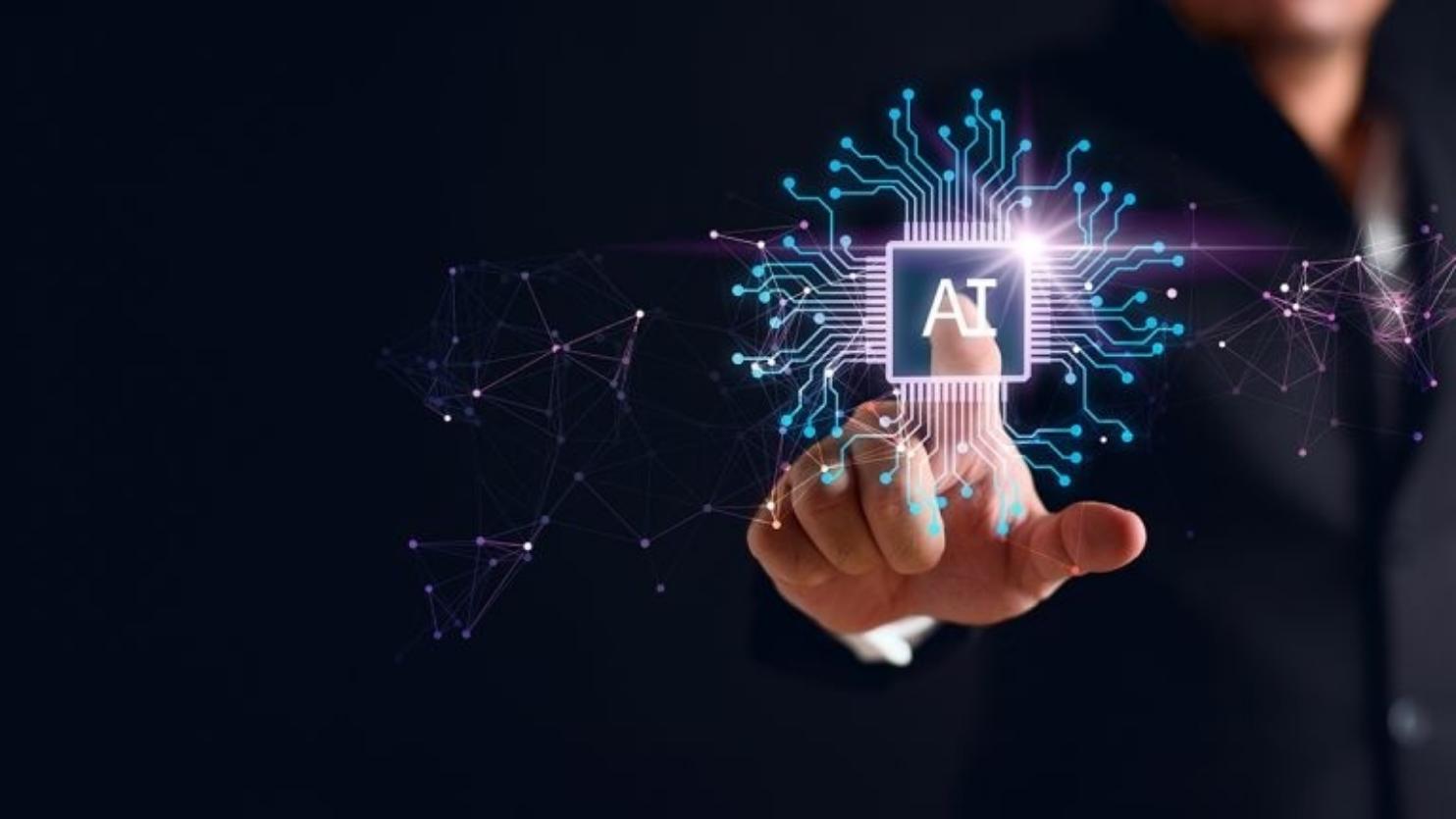Artificial intelligence (AI) is now deeply interwoven with both professional and personal life, transforming how we work, create, and even relate to each other.
In 2024, the unprecedented growth of AI has driven productivity, but at a cost that raises urgent concerns. Are we sacrificing essential human qualities—like creativity, empathy, and independent thought—in favor of efficiency?
Introduction
The reach of artificial intelligence is staggering. As of 2024, AI has moved beyond mere tech applications; it’s infiltrating almost every area of life.
While the benefits are obvious—higher productivity, faster processing, innovative solutions—the deeper effects are less visible but no less significant.
AI is taking over tasks that once required human insight, judgment, and even creativity, raising complex questions about what might be lost. This paper aims to uncover how AI’s integration affects not only the workforce but also the essence of what it means to be human.
1. AI’s Economic Dominance and Market Growth
AI’s economic rise in 2024 is monumental, with revenue projections for the global AI market around $196 billion—an increase of 20% from last year. In the United States alone, AI’s market value is forecasted to hit $146.1 billion, growing at nearly 19% annually.
The Asia-Pacific region, particularly China and India, is experiencing even faster growth, with AI-related sectors projected to surge by 25% before year-end.
In industry-specific terms, AI has gone far beyond experimental phases. Nearly 90% of large global corporations report active AI integration in operations, with the healthcare, finance, and retail sectors leading the way.
For example, healthcare AI alone grew by 28% this year, revolutionising diagnostics, patient care, and even surgical procedures.
Retail is using AI to refine everything from customer analytics to inventory management, with roughly 75% of leading retail chains employing AI for customised marketing and operational efficiency.
AI’s dominance in education is also notable. In 2024, an estimated 67% of educational institutions in the U.S. use AI-driven tools for grading, administration, and even personalised learning.
While this data underscores AI’s versatility and economic potential, it also signals a reliance on machines for decision-making processes that once required human discernment.
2. Workforce Displacement and Skill Shifts
Perhaps the most immediate impact of AI is in the workforce, where automation is rapidly redefining jobs. The International Labour Organisation reports that by 2030, up to 20 million jobs worldwide could be replaced by AI or automation—2 million of those likely this year alone.
The impact is felt sharply in sectors like manufacturing, retail, and logistics, where repetitive tasks are being streamlined by technology.
Yet, job displacement isn’t limited to physical labor. In finance, 32% of tasks once handled by entry-level analysts—like data sorting and basic predictions—are now automated.
Customer service faces a similar trend, with AI-driven chatbots and virtual assistants projected to manage 25% of inquiries globally by 2025.
New jobs have emerged to support these AI systems, mainly in technical fields like data science, AI ethics, and system design. However, this shift comes with challenges: 50% of the current workforce lacks the specialised skills needed for these new roles, according to a 2024 LinkedIn report.
In essence, AI is transforming not just jobs but the very skills we value, pushing workers towards roles that prioritize machine fluency over human creativity and relational skills.
3. AI’s Influence on Creativity and Cultural Expression
The impact of AI on human creativity is profound. As of this year, more than 60% of media companies rely on AI tools for tasks like generating headlines, designing visuals, and creating music.
On Spotify, for instance, AI-assisted playlists have risen by 37%, predicting trends and preferences almost flawlessly.
Even in journalism, AI-written articles increased by 48% in 2024 alone, as news agencies use algorithms to generate reports and narratives based on data patterns.
This shift raises a fundamental question: what happens to human expression when machines can mimic it? A recent survey found that 45% of young artists now use AI at some stage in their creative work, whether for ideation or final polish.
The music industry, similarly, reported that 28% of top-charting songs in 2024 involved AI in their creation—a statistic that highlights the line-blurring between human and machine-generated art.
The psychological response to this shift is mixed. According to a 2024 study in Psychology Today, 70% of individuals aged 18-25 perceived AI-generated art as “less personal” than human-created work.
Yet, paradoxically, 65% admitted to consuming AI-generated media more frequently, citing its accessibility and tailored content as reasons.
The result is a complex interaction where AI reshapes cultural norms, yet simultaneously risks eroding the authentic expression and creativity that define human culture.
4. Ethical and Psychological Implications of AI Interaction
AI’s reach extends even into areas that involve human emotions and moral decision-making. In mental health, nearly 40% of mental wellness apps now use AI-driven chatbots for counseling, and usage has risen by 22% in the past year alone.
This approach offers access and affordability but raises ethical questions. According to a survey by the American Psychological Association, 58% of users felt that AI-driven mental health solutions lacked the emotional depth they needed, though 42% appreciated the accessibility.
Frequent AI interactions are also shaping social skills in surprising ways. Research from Cambridge University in 2024 found that people who interact frequently with AI systems report decreased patience and empathy in real-world interactions.
The findings hint at a troubling outcome: as AI becomes a social and emotional intermediary, it could weaken interpersonal skills, making it harder for people to connect on a genuine level.
The ethical dilemma around AI is also intensifying, especially as AI systems start handling high-stakes decisions—like job evaluations, financial loans, and even legal outcomes.
A 2024 study from Harvard Business Review found that 75% of companies using AI for critical decisions had no policy for AI accountability.
The data paints a picture of an ethical gray area where the benefits of automation collide with a lack of human oversight, creating risks that society has yet to fully address.
5. Pathways to Preserve Human-Centered Skills and Values
In response to these developments, a movement is emerging to ensure AI complements rather than replaces human qualities.
Many educational institutions, for example, are introducing programs in ethics, philosophy, and critical thinking, aiming to equip future generations with skills that technology cannot replicate.
In 2024, about 20% of U.S. universities added ethics-focused courses on AI, emphasising human values and responsibility alongside technical skills.
Some industries are also experimenting with hybrid models, where AI is a tool rather than a replacement. In creative fields, artists are using AI as an enhancer, leveraging algorithms to inspire rather than dominate their work.
In customer service, companies blend AI for routine inquiries with human employees for complex, emotional cases. This dual approach suggests a pathway for AI that supports human capability without diminishing our essential skills.
Research Conclusion
The data from 2024 paints a vivid picture: AI’s integration into human life and labor is advancing with stunning speed, offering efficiency but also presenting risks to essential human qualities like creativity, empathy, and moral judgment.
If humanity is to retain its identity in an AI-saturated world, deliberate efforts are needed across education, industry, and policy to ensure AI serves human values rather than undermines them.
By setting ethical guidelines, prioritising human skills, and fostering a balanced approach, society can ensure AI acts as a supportive tool in the human journey rather than a replacement for the human spirit.
References
- “AI Statistics 2024 – AIPRM.” Available at: AIPRM
- “2024 AI Adoption Index 2.0,” NASSCOM, INDIAai. Available at: India AI
- “5 AI Trends to Watch in 2024 – Coursera.” Available at: Coursera
- “The Impact of Artificial Intelligence on Employment,” Nature. Available at: Nature
- International Labour Organisation data on workforce displacement.
- LinkedIn Workforce Report, 2024. “AI-related job postings and skill gap analysis.”







